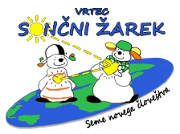Slovenia: Action learning in the day nursery Sončni žarek

In the day nursery Sončni žarek (Sunbeam) of Ljubljana (the capital city of Slovenia), a group of expert in communication promoted a Project of Action Learning in order to educate to the media the children of the nursery.
Media experts concur that it is children who are the most vulnerable part of the population when it comes to exposure to media messages, lacking, as they do, experience and the capacity for abstract thought. Today media messages contain concealed meanings, whose purpose is usually of a financial nature.
In order to understand the messages of the media it is necessary to be media-literate, but in this scientific field pedagogical praxis lags behind technology and the use thereof.
The aim of the media education programme in the Sončni žarek (Sunbeam) day nursery is to show the effectiveness of the new approach to media education known as action learning. While media messages appear to be quite natural, they in fact use a complex ‘audiovisual’ language which has its own rules and which can be used to express different concepts and ideas of the world.
If children are to be able to cope with their own lives within the culture of the media, they must be competent in ‘reading’ and ‘writing’ the language of the self-same media. The children of today have had greater and longer exposure to the media than previous generations. They have had access to the life of adults, especially in those areas which are morally vexed, and in those for which they are not yet sufficiently mature. In reality, they actively seek access to them. These include knowledge and experience of drugs, sex, divorce and family breakdown, crime,…where the children are both victims and perpetrators.
It is not only the lack of experience of media and of society which causes problems for five-year-old, but also the lack of a capacity for abstract thought, which only develops at a later stage. For this reason, many institutions put pressure on this specific section of the population through the media. It is important to bear in mind the new status of children as consumers: they have become an important and lucrative market, with the same rights enjoyed by adult consumers.
Media experts agree that becoming media-literate is a key element of socialization in our time. How though to tackle this problem in a pedagogical setting as a project of media education?
Many experts recommend a modern method of pedagogy, t.i. action learning, an experimental approach to group learning, which may be generically defined as a process of active learning, enriched by feedback (analysis and dialogue) which takes lace with the support of colleagues and teachers. Until a short time ago, most experts in the field of media education contested the use of media production. As a consequence there are few surveys. Only in the last decade has this production been accepted as a key element in media education, both in theory and in pratice. In this field the lack of research is strongly felt.
Our intention is to reduce the gaps in the investigations in this field, as well as in the field of media education, in order to improve skills, knowledge, and capacities of analysis and awareness. In our case, the production of multimedia texts is particularly important.
Experts in the field of media education are in agreement that the self-production of texts is a way to build up the self-esteem and autonomy of children and young people vis-à-vis the media, and, in consequence, to form a critical distance from media constructions. “Self-production as an experience is essential for comprehending and coping with the world of the media.”
Masterman’s considerations regarding production learning might be “translated” into what for the teacher is action learning, where teacher and child speak about a particular matter, and there follows a test.
One of the key elements of media literacy is the distinction between fiction and reality. The purpose of media education, through a process of demystification of the media, is to study the ideologies hidden within the persona of the media. We need to acquire skills for the deconstruction of values: for example, to identify values, to penetrate unspoken, or hidden, media perspectives. Media education using an action approach requires great commitment and much time. It is also a prerequisite that many people are willing to collaborate, as the method involves the knowledge and discoveries arising, above all, from the interaction among all those involved in the project. Perhaps it is for this reason that there is a lack of research and statistical data in this sector. Considerable progress needs to be made in the near future.
Janez Snoj, has worked for years as a “media educator” with children from 1 to 6 years of age in the day nursery Sončni žarek. His team is composed of around twenty colleagues, but all the staff of the day nursery are involved over time in small work groups. They have both little equipment and little money, but what they do have is a great deal of passion. They seek donations of old and new media and it is with these that they do their work.
Janez Snoj
(source: NetOne)


